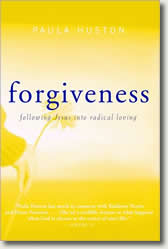Fasting
 I was in the doctor’s examining room because my heart had been misbehaving, and it was scaring me enough that I was finally getting myself checked. After all, my dad’s heart attack occurred when he was only 49, a good seven years younger than me. Perhaps I was genetically fated to join him.
I was in the doctor’s examining room because my heart had been misbehaving, and it was scaring me enough that I was finally getting myself checked. After all, my dad’s heart attack occurred when he was only 49, a good seven years younger than me. Perhaps I was genetically fated to join him.
Dr. Steele put his stethoscope to my chest, listened carefully, then ordered a weeklong Holter monitor test to see if he could pinpoint the problem. After the test, we met again. The frightening arrhythmia had failed to show up, so this time Dr. Steele suggested that we do an experiment—no caffeine whatsoever for three full months. And that included chocolate.
My heart sank. I was a chocolate aficionado from way back. And I was shockingly dependent on my morning cup of caffeine. How could I possibly do this? Yet the next morning, I found myself foregoing coffee so easily I surprised myself. Ditto for chocolate. I had considered both of these indulgences unbreakable habits. What was going on?
Though I can’t be positive, I’m pretty sure this peaceful surrender was the fruit of my long experience with fasting. Even though I no longer fast as often as I used to, the effect has lingered. Material things—even food—don’t preoccupy me the way they once did, and I’m no longer tempted to exaggerate the side-effects of self-deprivation.
Fasting is one of the most venerable of the ancient spiritual disciplines for good reason. It helps achieve an important goal, which is freedom from the constant whine of wanting. Most great religions include some form of the practice, though the structure often varies. Islam, for example, celebrates Ramadan by limiting its practitioners to one meal a day, taken after sunset, for an entire month. Benedictine monks have a long history of what they call the “regular fast,” also one meal a day. Before Vatican II, most Catholics ate only fish on Fridays, the day Jesus was crucified. Eastern Orthodox Christians limit their diets in various ways during the Lenten season by avoiding eggs and dairy products, or giving up meat.
Though fasting has never been easy, I suspect that nowadays it is even more difficult than it once was. In the past, people were used to harsh conditions and deprivation, whereas in our day we place a premium on personal comfort and the ability to choose what we prefer instead of settling for what’s available. In ancient times, Greek and Roman philosophers extolled the virtues produced by strict self-discipline, whereas our consumerist culture fosters the belief that there is something unnatural—even dangerous—about deliberately depriving oneself of anything. If older societies trained their children to be tough and capable of withstanding hardship, our own children are bombarded with messages that urge self-indulgence rather than restraint. Thanks to our modern-day commitment to self-actualization rather than heroic self-sacrifice, we have come to believe that refusing to capitulate to desire is actually self-destructive.
Yet the old monks of the desert believed that they would be hampered in their spiritual growth until they learned to control their passionate wantings. They realized that focusing on their desires invariably led them into nasty psychological thickets that tied them down and distracted them from their true goal: a life in God. Allowing themselves to fantasize about whatever they happened to desire at the moment, whether that be food, sex, or some material object, quickly took their focus off God and impeded their prayer. Longing for what they didn’t have led either to envy of others, or—worse—to a prolonged state of regretful sadness. The end result of dreams involuntarily deferred was bitterness and cynicism.
To combat a propensity to be dominated by their own desires, they developed ascetical practices intended to build spiritual strength. “Ascesis” means deliberate self-denial for the purpose of disciplining the body and mind. Their theory was that when we refuse to allow ourselves something we want, we obtain important new knowledge. Self-denial reveals our weakest places, which correspond to areas of greatest temptation. Discovering our shaky planks before they give way is a great preventative against sin.
Another function of ascesis is to replace bad habits with good. When we systematically deny ourselves that for which we long, we retrain our bodies to do without and thus free ourselves from the tyranny of habit. Finally, ascetical practices like fasting actually build moral strength, or virtue. Over time, and with enough practice, we become less liable to succumb to the dictatorial demands of body or ego and thus we become less self-centered.
Beyond all these beneficial moral and spiritual effects, however, fasting produces a joyful high that is hard to put into words. My first fast came after reading a book by a Benedictine monk call Adalbert de Vogue with the intriguing title To Love Fasting. Here was a true adventure story—the tale of a man who systematically and compassionately retrained his modern, overfed body to live as the old monks once did: on one meal a day. He did not battle his own flesh, he simply allowed it to find in its own time each new level he set for it. After years of the one-meal-a-day regimen, he was able to say that fasting gave him mental clarity, spiritual focus, and an overflowing joy.
De Vogue’s book provided the incentive to try it for myself. I decided to make use of the same type of fast, but only for a single day: one meal, taken in the evening. I woke up excited but nervous—what if I got weak or shaky or wound up with a horrible headache? What if I became irritable from low blood sugar and snapped at everyone because I was so famished? What if I fainted from hunger?
For the first couple of hours I spent so much time worrying that it took me awhile to realize I was completely fine. It did not kill a person to skip her eggs and toast for one morning. In fact, I hardly noticed any difference in the way I normally felt. But lunchtime was looming, and how would I get through that without my usual tuna salad complete with celery and slivers of onion and liberal amounts of dill? In fact, I could almost taste that salad now, and the thought of giving it up was genuinely painful. I spent most of lunchtime moping over what I was missing.
But I made it through. However, by now I was beginning to feel my first real hunger pangs, and I found them surprisingly scary. I brooded about how uncomfortable I was (and dangerously lightheaded besides) until I had a humbling realization. I was unnerved by hunger pangs because I’d never really had one before, not the kind that came from total lack of food. I live in such a privileged society that in my whole life, I’d never experienced what much of the rest of the world takes for granted: persistent, grinding hunger.
At 3:00, I almost gave up the experiment. Suddenly, I could no longer bear to go without food for one more minute. Dinner was at 6:00, three hours away, and I didn’t believe I could last. I desperately roamed the kitchen until reason took over again. I would not die between 3:00 and 6:00. It was okay. I could do it. But I needed to pray hard for the strength to go on, because I no longer had the will.
At 5:00, an hour before eating, I actually experienced a brief moment of what De Vogue learned to expect from a long day of fasting: a moment of scintillating mental clarity and an uprush of happiness and loving thoughts. I felt tremulous with joy, and began to cry. Something powerful was happening inside me, and it wasn’t merely physical. The physical, in fact, had momentarily submitted to something larger than itself, and this did not feel unnatural at all, but exactly as it should be.
At 6:00, I sat down in great thanksgiving and ate my first meal all day. Never had I been so grateful for the food on my plate. Never had I been so cognizant of taste, texture, color, and the sheer beauty of vegetables. Instead of simply eating a meal, I was feasting. And it was glorious.
So perhaps there was another reason it was so easy to give up coffee and chocolate when Dr. Steele told me to do so for the sake of my poor, fluttering heart. Perhaps I had already guessed that within this latest experience of self-denial lay the potential for more joy. And thankfully, I have found it to be so. Giving up caffeine has led to better sleep, less anxiety, and greater peacefulness. Those habitual comforts of mine, innocuous as they might seem, were a hindrance to spiritual equanimity, though I never knew this till I gave them up.
And the good news is, my heart seems pleased too.
Copyright © 2009 Paula Huston

